FOLKLIFE RESOURCES
Folklife traditions are expressions of a shared culture, acquired and passed on over time in face-to-face interaction and in small groups (through oral tradition, performance, etc.). Groups share folklife on the basis of their ethnicity, religion, occupation, gender, region, family membership, or any other kind of common identity. While folklife is maintained over generations, it changes as tradition bearers adapt to changing cultural circumstances and exercise creativity within the conventions of a form of folklife. Forms of folklife include customs, beliefs, traditional narrative, folk songs, vernacular architecture, traditional crafts, festivals, folk theatre, rituals, traditional folk dances, etc. All can be found in cultures worldwide.
The following resources are divided into the following categories: Archives, Finding Artists, Collections and Exhibitions, Folklife and Fieldwork Fundamentals, Folklife in Education, Funding, Music and Dance, National Folklife Resources, and Native American Cultures.
Archives
American Folklife Center, Library of Congress
The American Folklife Center’s Archive includes over three million photographs, manuscripts, audio recordings, and moving images. It consists of documentation of traditional culture from all around the world. It is America’s first national archive of traditional life, and one of the oldest and largest of such repositories in the world.
Archives of Traditional Music at Indiana University
The Archives of Traditional Music is an audiovisual archive that documents music and culture from all over the world. With over 100,000 recordings that include more than 2,700 field collections, it is one of the largest university-based ethnographic sound archives in the United States.
Fife Folklore Archives at Utah State University
The Fife Folklore Archives (FFA) is one of the largest repositories of American folklore in the United States. The FFA is part of Utah State University’s Special Collections and Archives where the historical American Folklore Society Manuscript Collection is housed.
Wilson Special Collections Library
The Wilson Special Collections Library, located on Polk Place at the heart of the University of North Carolina at Chapel Hill campus, is home to the University Library’s North Carolina Collection, Rare Book Collection, Southern Folklife Collection, Southern Historical Collection, and University Archives, and Records Management Services.
Finding Artists
Center for Traditional Music and Dance
Founded in 1968, the Center for Traditional Music and Dance (CTMD) assists New York City’s immigrant communities to preserve the vitality of their distinctive performing arts traditions and promotes cross-cultural understanding by sharing these art forms with audiences across the city.
Texas Folklife Resources
Texas Folklife is a statewide nonprofit organization dedicated to preserving and presenting the diverse cultures and living heritage of the Lone Star State. For 32 years, Texas Folklife has honored the cultural traditions passed down within communities across Texas and explored their importance in contemporary society.
Virginia Folklife Program
The Virginia Folklife Program (VFP), a public program of the Virginia Foundation for the Humanities, is dedicated to the documentation, presentation, and support of Virginia’s rich cultural heritage.
World Music Institute
Founded in 1985 as a not-for-profit, World Music Institute has served as the leading presenter of world music and dance within the United States.
Collections and Exhibitions
Museum of International Folk Art
The Museum of International Folk Art fosters understanding of the traditional arts to illuminate human creativity and shape a humane world.
UCLA Fowler Museum of Cultural History
The Fowler Museum at UCLA explores global arts and cultures with an emphasis on works from Africa, Asia, the Pacific, and the Americas—past and present.
Folklife and Fieldwork Fundamentals
Folklife in Louisiana
The Louisiana Folklife Program, within the Division of the Arts, is designed to identify, document, conserve, and present the folk cultural resources of Louisiana.
Folklore and Fieldwork
The full online version of this guide to fieldwork appears on the American Folklife Center’s site.
New York Folklore Society
The New York Folklore Society was founded in 1944. The purpose of the Society and its journal, the New York Folklore Quarterly, was, as co-founder Louis Jones said, “to plow back” into the community the folklore collected by scholars and laypeople throughout the state.
Folklife in Education
Local Learning: The National Network for Folk Arts in Education
Local Learning is an organization comprising folk cultural specialists, folk artists, and educators, who have developed Folk Arts in Education (FAIE) programs in a wide variety of educational venues.
Louisiana Voices Folklife in Education Project
The Louisiana Voices Folklife in Education Project provides educators with tools for teaching Louisiana folklife–including extensive teaching materials, training, research strategies, student activities, concepts, and content–via the Louisiana Voices Educator’s Guide.
Funding
National Endowment for the Arts
Most folk arts projects funded by the National Endowment for the Arts (NEA) are supported through Heritage and Preservation, but funding is also provided through other divisions. The NEA’s site gives a complete listing of funded projects. Visitors to the site can download applications and guidelines.
National Endowment for the Humanities
Funding is available from the National Endowment for the Humanities (NEH) for folklore research, educational activities, public programs and the preservation of sound recordings and material culture. The site provides a full listing of funded applications and enables visitors to download guidelines and application forms.
Music and Dance
American Routes
American Routes is a weekly two-hour public radio program produced in New Orleans, presenting a broad range of American music—blues and jazz, gospel and soul, old-time country and rockabilly, Cajun and zydeco, Tejano and Latin, roots rock and pop, avant-garde and classical.
Cross-Cultural Dance Resources
Cross-Cultural Dance Resources promotes the holistic understanding and appreciation of the diversity and significance of dance as a human universal in all cultural contexts through active research, publication, consultation, and public presentation.
Smithsonian Folkways Recordings
Smithsonian Folkways Recordings is the nonprofit record label of the Smithsonian Institution, the national museum of the United States. Smithsonian Folkways Recordings is dedicated to supporting cultural diversity and increased understanding among peoples through the documentation, preservation, and dissemination of sound.
Society for Ethnomusicology
The Society for Ethnomusicology was founded in 1955 to promote the research, study, and performance of music in all historical periods and cultural contexts.
National Folklife Resources
American Folklife Center of the Library of Congress
The American Folklife Center was created in 1976 by the U.S. Congress to “preserve and present American folklife” through programs of research, documentation, archival preservation, reference service, live performance, exhibitions, publications, and training.
American Folklore Society
The American Folklore Society website connects the Society to its members, and also connects folklorists to each other and to the world at large.
National Endowment for the Arts, Folk and Traditional Arts
The National Endowment for the Arts folk and traditional arts program has had a major impact on the folk arts field, strengthening its infrastructure and seeding programs.
Smithsonian Center for Folklife and Cultural Heritage
The Center for Folklife and Cultural Heritage promotes greater understanding and sustainability of cultural heritage across the United States and around the world through research, education, and community engagement.
Native American Cultures
Indian Pueblo Cultural Center
Located in Albuquerque, New Mexico, the Indian Pueblo Cultural Center (IPCC) is a world-class museum and cultural center created to be a place where Pueblo people can tell their story. As the Gateway to the 19 Pueblos of New Mexico, the IPCC provides visitors with a jumping off point for understanding the state’s landscape, legacy, story of continuance, and unique connection between cultures.
National Museum of the American Indian
A diverse and multifaceted cultural and educational enterprise, the National Museum of the American Indian (NMAI) is an active and visible component of the Smithsonian Institution, the world’s largest museum complex. The NMAI cares for one of the world’s most expansive collections of Native artifacts, including objects, photographs, archives, and media covering the entire Western Hemisphere, from the Arctic Circle to Tierra del Fuego.
The Alaska Native Heritage Center
An educational and cultural institution for all Alaskans, the Alaska Native Heritage Center provides programs in both academic and informal settings, including workshops, demonstrations, and guided tours of indoor exhibits and outdoor village sites.




